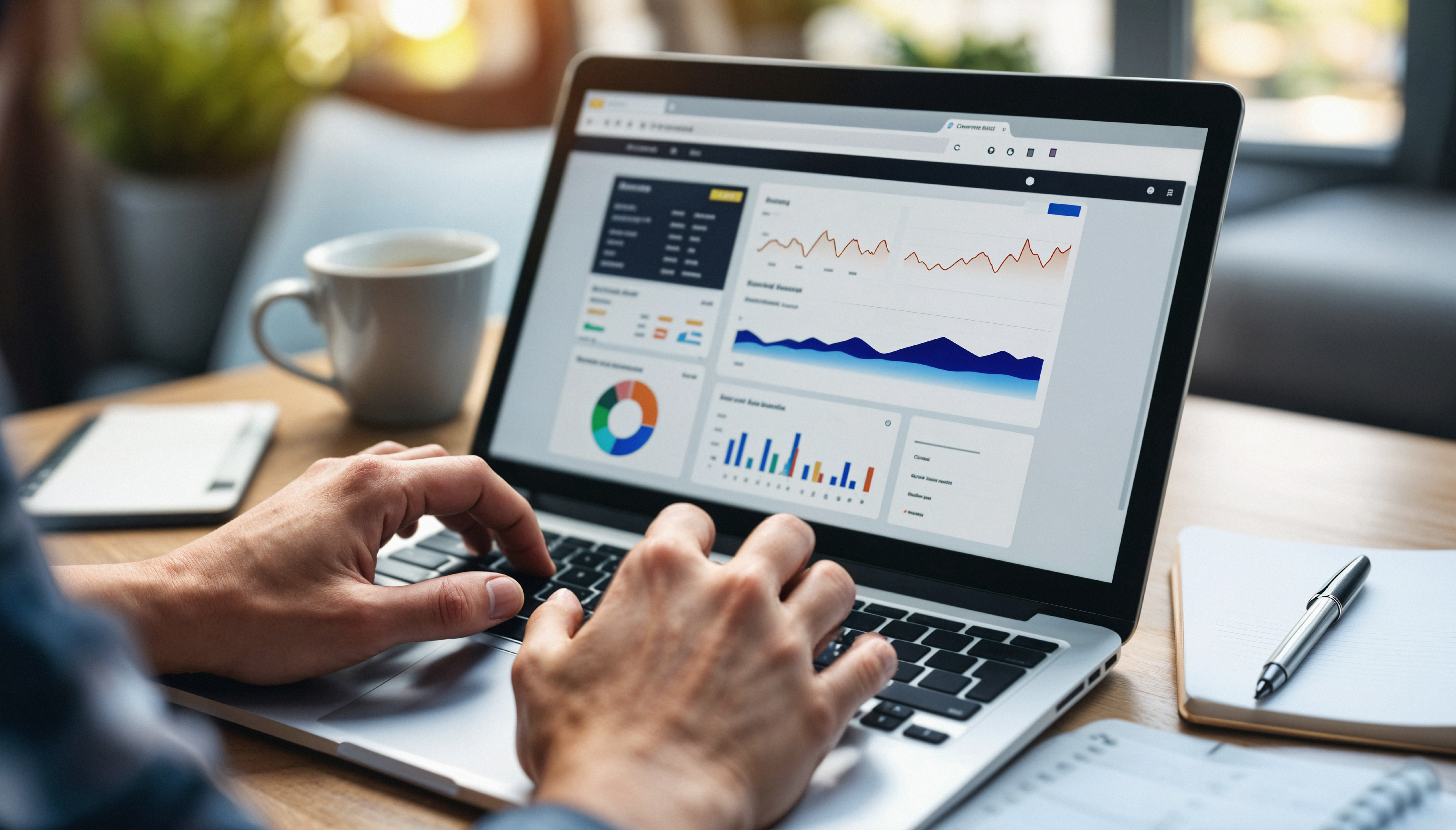
You’ve probably wondered where to invest your marketing budget. Should you go for Local Service Ads (LSAs) or stick with Pay-Per-Click (PPC) campaigns? Both can bring in customers, but they work very differently.
LSAs and PPC are like two roads to the same destination. More leads, but the route, cost, and experience vary greatly. Understanding how they differ helps you spend wisely and attract the right customers fast.
What Are Local Service Ads (LSAs)?
Local Service Ads (LSAs) are a Google program designed to help verified businesses connect directly with nearby customers searching for specific services. You’ve seen them. Those top-of-page ads labeled “Google Guaranteed.”
The beauty of LSAs is that you only pay for valid leads, not clicks. That means if someone calls or messages through your ad, that’s when you’re billed.
- LSAs appear at the very top of Google results, above PPC and organic listings.
- They’re exclusive to verified, licensed, and insured service providers.
- They showcase reviews, business details, and a Google Guarantee badge.
- They connect customers directly via phone or message.
What Is PPC Advertising?
Pay-Per-Click (PPC) advertising is a more traditional online marketing model. You bid on specific keywords like “emergency plumber Auburn AL,” and your ad shows up in the paid section of Google results.
Unlike LSAs, you pay every time someone clicks on your ad, whether or not they contact you.
- You control which keywords trigger your ad.
- You can target multiple locations and services.
- You can send customers to your website or landing page.
- You’re charged per click, not per lead.
Key Differences Between LSAs and PPC
Both advertising types aim to generate leads, but the process and outcome differ:
- Placement: LSAs appear above PPC ads in Google’s search results.
- Cost: LSAs charge per lead; PPC charges per click.
- Verification: LSAs require business verification; PPC does not.
- Trust Factor: LSAs show the Google Guarantee badge for added credibility.
- Ad Destination: LSAs lead to a profile page; PPC directs users to your website.
Pros of LSAs for Home Services
Local Service Ads are ideal for service-based businesses that rely on local leads.
- You get real, phone-ready leads instead of just clicks.
- Customers trust Google Guaranteed providers more.
- You pay only when a real customer contacts you.
- Easier to manage once your profile is verified and active.
Pros of PPC for Home Services
PPC offers flexibility and broader targeting capabilities.
- You can reach customers beyond your local area.
- You have full creative control over ad copy and design.
- You can promote discounts, offers, or specific landing pages.
- You can test different messages to find what works best.
Which One Is Better for Home Service Businesses?
The answer depends on your goals.
If your focus is on local, verified, phone-ready leads, LSAs are the better option. If you want website traffic and brand awareness, PPC offers more flexibility.
Many businesses find success using both LSAs and PPC together. One captures immediate calls, while the other builds long-term recognition.
How Experts Execute the Perfect LSA and PPC Plan
The most successful campaigns use both tools strategically. Here’s how marketing experts execute an effective plan for maximum impact:
- Research local market data to identify which keywords drive service calls.
- Set up and verify your LSA profile, ensuring all documents and details meet Google’s requirements.
- Build a complementary PPC campaign that supports your LSA by targeting broader or related services.
- Track every lead, call, and click through integrated analytics tools.
- Review campaign performance weekly and optimize budgets for the best ROI.
When done right, this dual approach ensures steady growth, better brand trust, and consistent lead flow throughout the year.
Final Thoughts
Both Local Service Ads (LSAs) and Pay-Per-Click (PPC) advertising offer distinct advantages and bring unique value to your overall marketing strategy. LSAs excel at delivering verified, phone-ready local leads, providing immediate opportunities to connect with customers actively seeking your services. Meanwhile, PPC expands your reach and enhances brand recognition, ensuring your business remains top-of-mind for a wider audience. By strategically combining these two powerful tools, you create a strong digital foundation that ensures both quick, tangible results and sustainable long-term growth.
Build a Winning LSA + PPC Strategy with Timpson Marketing
Timpson Marketing specializes in crafting, managing, and optimizing Local Service Ads and PPC campaigns tailored to your goals.
Here’s how we execute your plan to perfection:
- Comprehensive Strategy: We analyze your industry, audience, and competition to create a balanced LSA and PPC mix.
- Professional Setup: We handle verification, ad creation, and campaign launch for a seamless start.
- Ongoing Management: We monitor your ads daily, optimizing for performance and ROI.
- Transparent Reporting: You’ll see every call, click, and conversion through detailed reports.
- Proven Growth: We fine-tune campaigns weekly to keep results consistent and cost-effective.
Your local customers are searching right now. Make sure they find you first. Contact Timpson Marketing today to launch your winning LSA and PPC strategy and watch your home service business rise above the competition.
Frequently Asked Questions
1. What is the main difference between LSAs and PPC?
LSAs are pay-per-lead ads for verified local service providers. PPC charges for every click, regardless of conversion. LSAs show above PPC in search results. PPC offers more customization but less verification.
2. Which is cheaper, LSAs or PPC?
LSAs are usually more cost-effective because you pay only for real leads. PPC can become expensive if clicks don’t convert. However, costs depend on competition and location. LSAs generally yield better ROI for local businesses.
3. Do LSAs require a Google Guarantee?
Yes. LSAs require verification through the Google Guarantee program. Businesses must submit licenses, insurance, and background checks. This builds trust and filters out fake listings.
4. Can LSAs and PPC run together?
Absolutely. Many companies use both to dominate search results. LSAs drive calls; PPC drives web traffic. It’s a smart multi-channel strategy for maximum visibility.
5. Which generates better leads?
LSAs produce higher-quality leads since customers directly contact you. PPC often generates website visitors first. LSAs filter intent-driven leads ready to hire. PPC leads may need more nurturing.
6. Are LSAs available for all industries?
No, LSAs are limited to approved service categories. Industries like plumbing, electrical, and legal qualify. You must check eligibility on Google’s official LSA page. If available, apply early to gain priority ranking.
7. Do LSAs require a website?
No. You can run LSAs without a website since calls go through Google’s system. However, having a site adds credibility. It also helps with PPC campaigns.
8. How are LSA leads verified?
Google monitors calls and messages through its dashboard. Businesses can dispute unqualified leads. Refunds are issued for invalid contacts. This keeps the lead quality high.
9. Do LSAs improve SEO rankings?
Not directly. LSAs operate separately from organic SEO. However, they enhance local visibility and review collection. Indirectly, this can improve brand trust and search engagement.
10. Can PPC target multiple cities?
Yes. PPC allows flexible location targeting. You can reach customers across different areas or states. LSAs are restricted to your verified service zones.
11. How long does it take to set up LSAs?
It can take from a few days to a few weeks. Verification steps and background checks cause delays. Once approved, your ads go live instantly. Keeping documents ready speeds up approval.
12. What happens if I ignore LSA leads?
Ignoring leads hurts your ranking. Google favors active responders. Quick replies improve your ad visibility. Always respond, even if you can’t take the job immediately.
13. Can I track conversions for LSAs and PPC?
Yes, both include tracking dashboards. LSAs show calls and messages, while PPC tracks clicks and web actions. Integrating data gives you complete insight into ROI.
14. Do reviews affect LSA performance?
Yes, heavily. Positive reviews improve ranking and visibility. Encourage customers to leave honest feedback. Regular reviews signal reliability to Google and customers alike.
15. Are LSAs worth it for small businesses?
Definitely. LSAs help small businesses compete with larger brands. Verified listings level the playing field. Plus, paying per lead saves budget waste.
16. How are PPC bids determined?
PPC bids depend on keyword competition and relevance. Higher bids often win better placement. Smart targeting helps reduce costs. Consistent optimization ensures balanced spending.
17. Do I need a big budget for PPC?
Not necessarily. You can start small and scale as you grow. Budget flexibility makes PPC accessible for any business size. Regular adjustments improve performance over time.
18. How do LSAs handle fake leads?
Fake or spam leads can be disputed. Google reviews each claim and issues credits for invalid cases. It ensures fair billing and protects advertisers. Always monitor your leads closely.
19. Can PPC boost brand awareness?
Yes. Even if users don’t click, seeing your ad reinforces your brand. It’s great for exposure and trust-building. PPC complements LSAs by creating multi-touch visibility.
20. Which should I choose first—LSA or PPC?
Start with LSAs for local lead generation. Then add PPC for broader traffic reach. Together, they create a powerful marketing ecosystem. The balance depends on your business goals.




Leave A Comment